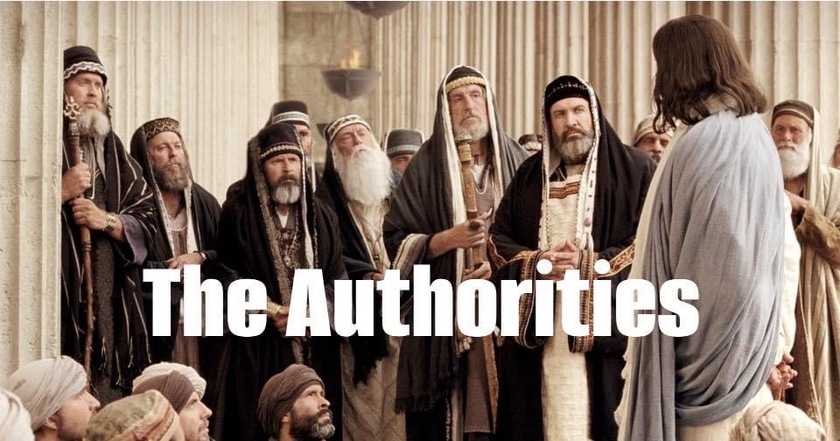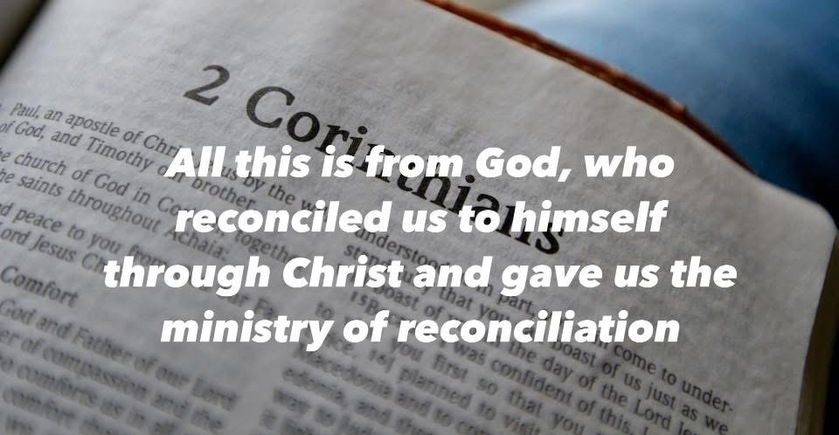It's All in the Interpretation
The interpretation in question:
Isaiah 7:14b (RSV, amplified)
"Behold, a young woman (Alma, virgin) shall conceive (future tense) and bear a son, and shall call his name Imman′u-el"
In the Old Testament prophecy, (Isaiah 7:13-14), we have the Lord promising a sign to Ahaz that “the virgin shall conceive and bear a son.” The Gospel of Matthew claims that Jesus’ conception by The Holy Spirit in the Virgin Mary is the fulfillment of that promise, citing, Isaiah’s prophecy explicitly (Matthew 1:23). And so, conversely, unbelieving scholars do not take it for granted that Matthew’s interpretation of Isaiah is valid as pretty much all first century Christians did. These scholars are men who do not believe in the divine, and supernatural miracles. They maintain that Jesus was born like anyone else, with a human mother and father, and that his virgin conception was a later legendary embellishment. And they also weren't convinced that Matthew, the gospel writing evangelist, was even the same Matthew of Jesus' apostle fame.
Their main objections and arguments is that the Hebrew word alma does not mean “virgin” in their reckoning. In addition, they point out that the Lord offers this sign to Ahaz, not alive in the times of Jesus' birth, in fact this was some 700 years prior. These doubters would often argue that if Isaiah meant “virgin,” he would have used the Hebrew word betula (בְּתוּלָ֕ה). And it's true that this word seems to say "virgin" but interestingly is often qualified in the scriptures with phrases that explain that it means to say, “those who had not known a man by lying with him” and so it seems a bit redundant to insist upon this word betula if it truly and emphatically is meant to say what we mean to say when we say "virgin". We shouldn't have to explain to the reader what that word means, if it indeed means what it means.
The truth of the matter is, Alma ("virgin", not merely "young woman" ) lies closer to the meaning and understanding of virginity than the word betula. And there are many instances in scripture where this is made apparent. One in particular is found in Genesis when Abraham is wanting to find a wife for his son Isaac, and he finds Rebekah, the virgin [alma].
Genesis 24:16 says,
"The young woman [alma] was very attractive in appearance, a [betula] whom no man had known. She went down to the spring and filled her jar and came up."
The word betula by itself doesn't seem to be enough to indicate virginity. It must be enhanced with a conditioning phrase, "whom no man had known", to guide the reader into better understanding.
And then a little later on:
Genesis 24:42-43
"I came today to the spring and said, ‘Yahweh, the God of my master Abraham, if now you are prospering the way that I go, behold, I am standing by the spring of water. Let the virgin [alma] who comes out to draw water, to whom I shall say, “Please give me a little water from your jar to drink…”
It is clearly understood that Rebekah, and many others at the well, are thought to be virgins, and so betula is not employed, nor any conditioning phrases. Alma seems to assume the virgin condition that betula does not. And another important thing to note is that the Greek translation of the Old Testament translates alma with the Greek word parthenos (παρθένος), which does mean “virgin.” It was clearly understood, by those who were not predisposed to doubting the supernatural miraculous events testified to in the gospels, that Mary, the mother of Jesus, was a virgin who gave birth to the Messiah. They certainly had no theological agenda regarding Jesus that would make them push in their own doubts about this miracle.
Yes, Isaiah's grammar and use of the language is not as unambiguous as we may like, but the term "virgin" [alma] is perfectly appropriate and probable for the message being sent in Matthew's gospel. I mean, Matthew’s account of Jesus’ birth is certainly clear enough. Matthew’s interpretation of Isaiah is inspired by the Holy Spirit and therefore valid. And it's instances like this that help us to appreciate that we in fact have four gospels to cross check the messaging.
Luke in his gospel, who is especially acting as a reporter of history, also recounts the virgin conception, and never cites Isaiah’s prophecy.
Regarding the sign given to Ahaz some 700 years prior. The sign is given to him and to all those who like him rebelled against God's plan. And so this prophecy speaks to that generation about the ultimate outcome of their rebellion, not an immediate outcome, but an example of God's justice that is played out throughout many generations going forward. The promise is made to the entire royal house. And it's forward speaking, prophetic, according to Isaiah 7:15-16, by the time the virgin born son grows up, the threat that Ahaz needed to be concerned about will have already ended.
“For before the boy knows how to refuse the evil and choose the good, the land whose two kings you dread will be deserted” (vs. 16)
In the times of Jesus the Assyrian empire Ahaz feared is gone, no more, completely destroyed as God had predicted. This reality affirms Isaiah 7:16.
But the fact of the matter is, just plain common sense argues against these doubters and their false interpretations. If the virgin birth was not as it was meant to be conveyed, then what's the point? What possible sign would have been given by a normal woman giving birth in all the normal ways? Children are born all the time. What significance is there in this child if it is not a virgin birth?
But maybe that's the point of the dissent.
Today, as then, we have our own Pharisees and unbelieving scribes who reject the supernatural. We have people who believe that only they hold all the knowledge, all the understanding, and all the authority to interpret the Word of God, by virtue of their self righteousness, and social status. Jesus dealt with it in his age and nothing has changed even now.
I'll tell what I think is really going on here. Ahaz rejected the prophecy and acted accordingly. The Pharisees and scribes in the times of Jesus also rejected this supernatural revelation and acted according to their own desires. And today many continue that same tradition. They all reject the supernatural revelation inspired by the Holy Spirit that runs through all the gospels and the New Testament. A river of life running through all the scriptures. And they want to dam up that river. They want to control and manage it. Make it their own power source. They want that power for themselves and their programs. They want to be the focus of that program. They want to keep their status and make themselves relevant. And the supernatural power of the Holy Spirit is a problem for them, because he directly challenges their role in religion. And they can't have that.
They want to abort the supernatural baby Jesus by casting doubt upon the virginity of his blessed mother. Satan tried to abort him through Herod, and failed. So he sent the Pharisees and the scribes, and all the doctoral lawyers and soldiers to persecute him. All the wisest of the wise. The important people. And they murdered him on a Roman cross. Lawfare of the highest order. Us and them.
And then Jesus rose from the dead...but that's for another day.
God bless friends, we're in a supernatural battle against supernatural beings who will argue against your faith through fools and corrupted human hearts and minds.
Put on the full armor of faith.
Until next time, stay encouraged.




















